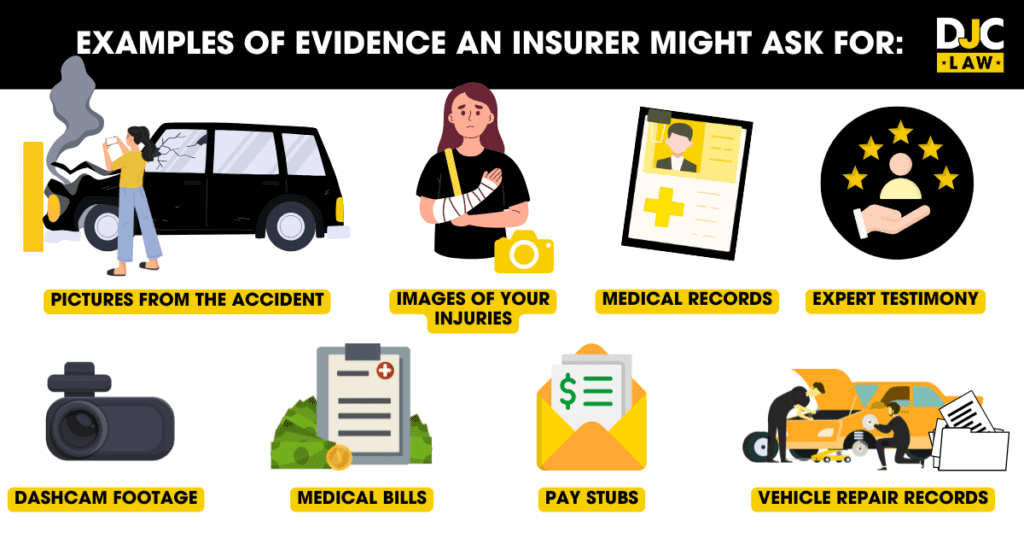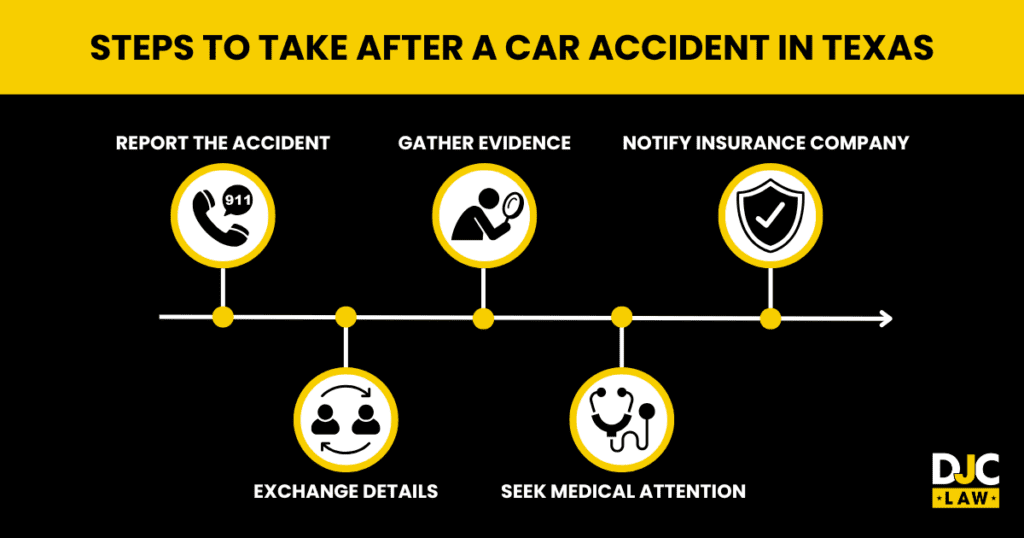Claiming after an injury in Texas enables you to get the settlement you deserve, but making a claim can feel less than straightforward, especially if you’re recovering from serious injuries. According to Aceable, Texas has been rated the worst state for driving across the nation, with no day in 2022 going by without at least one death in the Lone Star State.
Understand that you have the right to file a lawsuit for any injury that wasn’t your fault. However, it’s always best to have a trained legal professional on your side to defend your rights and ensure you don’t get taken advantage of. Consulting an Austin car accident lawyer can give you the support and expertise needed to handle your case effectively.
In this guide, we’ll discuss how long after an accident you can claim an injury, the ins and outs of car accident injuries, and the process of actually filing a claim.
Key Takeaways
The statute of limitations in Texas determines how long plaintiffs have to file a car accident claim. It’s currently set at two years from the date of your accident.
Accident victims should visit a doctor immediately after their accidents to avoid undermining their claims. Waiting more than two weeks can cause the defendant to downplay and question your injuries.
Car accident pain may not appear in the immediate aftermath. Instead, it can take hours, days, or even weeks for symptoms to appear.
Some of the most common delayed injury symptoms include neck pain, back pain, headaches, nausea, difficulty concentrating, and memory loss.
Filing an auto insurance claim requires going through your insurer's claims process, which will provide evidence to prove your losses and the other driver’s negligence.
Contact a lawyer to support your claim and ensure you maximize your settlement without being taken advantage of by insurers.
What is a Statute of Limitations in Texas?
The statute of limitations details how long you have after the date of your auto accident to file a lawsuit to recover damages. According to Nolo, two years is the standard calendar for filing a Texas personal injury lawsuit, based on Tex. Civ. Pract. & Proc. Code § 16.003.
A statute of limitations exists to protect potential defendants from unfair legal action. The concept arises from the fact that relevant evidence will likely be lost or obscured after a significant period. Moreover, witnesses may not remember the full details after a specific time frame.
Every state has a separate statute of limitations, so the two-year filing period in Texas may be longer or shorter in other states. Note that the statute of limitations only applies to how long you have to file a lawsuit, not how long you have to resolve one.
How Long Do You Have to Go to a Doctor After a Car Accident If You Are Filing a Lawsuit?
No specific time frame exists for how long you have to visit a doctor after a car accident. Most insurers recommend seeking medical attention “as soon as possible” after an accident. Generally, you have around two weeks to see a doctor before it could begin to harm any potential legal action.

According to the National Safety Council, there were more than 5.2 million injuries in 2022 requiring a medical consultation. The number is likely higher as not all accident victims would have sought medical attention.
The question is, should you visit a doctor if you feel okay? The answer is yes because many injuries don’t present symptoms until long after the adrenaline has worn off. Some injuries, such as traumatic brain injuries, may even present no symptoms at all.
Moreover, here’s what can happen if you don’t opt for a medical examination in a relatively short period after your accident:
Questioning Causation – Insurers are likely to argue that because you delayed medical treatment, the injuries you have may not have been caused by your accident at all. Instead, they’ll try to argue they were pre-existing.
Limited Severity – Another argument could be that your injuries can’t have been that severe if you took so long to see a doctor.
Claim Prejudice – Insurers can use your lack of a medical examination to answer that delaying medical treatment prevented them from being able to examine your accident because they didn’t know the true extent of your injuries.
Credibility – Attacking your credibility is another popular avenue to explore for insurers in this situation. They might argue that your inability to see a medical professional raises questions about your credibility as a claimant.
Damage Mitigation – If your injuries have worsened over time, the car insurance company could argue that the lack of medical intervention was the cause of that. This is another way of limiting the severity of your injuries by essentially putting part of the blame on you.
Defendants can use any number of tricks to downplay how severe your injuries are, limiting the size of any potential settlement. Even when these arguments are successful, they don’t prevent you from seeking compensation, but you may not receive as much as you’re entitled to.
When is it Too Late to Go to a Doctor After a Car Accident?
It’s never too late to go to a doctor after a car accident. However, waiting more than two weeks creates vulnerabilities in your claim that insurers can exploit. A prompt visit to a doctor demonstrates your injuries resulted from your car accident, and they were serious enough to require medical intervention.
Insurers also want to see evidence that you’ve done your best to diminish the impact of your injuries by consulting with a medical professional. Although it’s understood that certain types of injuries can take weeks or months to manifest, opening channels with your doctor early shows that you were serious about mitigating the overall impact of your injuries.
In short, it’s never too late to visit a doctor, but the sooner you do it, the better. Ideally, your first destination after leaving the accident scene will be a medical facility.
How Long After a Car Accident Can Pain Occur?
Car accident pain is a natural result of the blunt force trauma of a collision. Even minor fender benders can leave you feeling sore for 24-48 hours afterward. Delayed pain is also not uncommon, with the sensations not kicking in until a day or two after the accident.
Still, some car accident victims are left with serious injuries that don’t manifest for weeks or months. Likewise, pain can become chronic. According to Oviedo Chiropractic, some people experience long-term pain for months or years.
Visiting a doctor after an accident is essential, but you should attend follow-up examinations in the weeks and months afterward. Take any ache or pain seriously, as it could be a sign of underlying damage, including the following:
Neck
Spine
Arms
Legs
Brain
Why does delayed pain occur? It’s all down to the body’s natural fight-or-flight mechanisms and the production of adrenaline. Essentially, your body blocks out the damage caused to it, meaning you feel no to limited pain. When it wears off, you’ll start experiencing symptoms.
What to Expect Physically After a Car Accident
Many people feel perfectly fine after a car accident because of the initial shock and trauma of the impact. Minor car accidents often result in victims walking away without a scratch, but most symptoms take some hours to appear, with others waiting for days until they begin feeling the first symptoms.
Understanding the physical impacts of a car accident is critical to knowing why injuries are often so substantial. Newton’s First Law of Motion states an object in motion stays in motion until an outside force acts upon it, which is why you keep moving forward even when your car stops.
According to the Montana Department of Transportation, there’s a “deadly equation” to this. Take someone who’s not wearing a seatbelt. A relatively minor car accident at 30 mph creates the same force on the passenger as falling from the top of a three-story building.
Physically, you’ll probably be in shock. Initial injuries like bruises, cuts, and broken bones will be obvious, but many of the more significant injuries won’t be visible until hours later. That’s why it’s wise to accept medical help at the scene or drive yourself to a doctor.
What are the Delayed Symptoms of a Car Accident?
Delayed symptoms of a car accident include pain in the back, neck, and shoulders. You may also have abdominal pain, headaches, and a persistent feeling of nausea. Mentally, you may have difficulty concentrating or remembering things, which burns through every aspect of your day.
According to Alexander Orthopaedic Associates, the initial shock causes a drop in blood pressure. Combined with adrenaline, it’s easy to see why you might not initially see any of these delayed symptoms.
Here’s more on what each of these delayed symptoms means:
Back Pain – Back pain could indicate a significant spinal injury. Left unchecked, you could be left with significant mobility problems.
Neck/Shoulder Pain – Any pain or stiffness in the neck or shoulders could indicate a sprain, strain, or herniated disc. Whiplash is the most common condition associated with this symptom.
Headaches and Nausea – Headaches are pretty common and by themselves aren’t something to worry about, but if you experience nausea or flu-like symptoms, it’s time to visit a doctor. These symptoms together usually indicate a concussion or other type of traumatic brain injury.
Abdominal Pain – Pain in the abdominal region indicates soft tissue damage, but it could also be a red flag for internal bleeding.
Memory Loss – Memory loss or an inability to concentrate is one of the main signs of a concussion or other traumatic brain injury.
Delayed symptoms can be anything that you didn’t have before your accident. Every accident is traumatic to the body and must be taken extremely seriously. Monitor yourself in the days and weeks after your crash and act on any symptoms.
How Long Do You Have to Report an Accident in Texas?
Getting involved in a car crash in Texas requires you to report the accident to a police officer in most circumstances. Only if there were no injuries, deaths, or property damage exceeding $1,000 is there no obligation to file.
Judging whether your accident qualifies as “reportable” is problematic for the average person, so we recommend calling 911 and asking a traffic officer to attend in all cases. It’s better to be safe than sorry, and there’s no consequence in calling an officer to attend.
According to FindLaw, here’s the complete list of criteria requiring you to file. If one or more of the following are true, you must call the police:
An injury (no matter how minor)
A death
Property damage in excess of $1,000
If an intoxicated driver is involved
If one or more drivers don’t have insurance
If one or more drivers leave the accident scene
If one or more vehicles can’t be moved under its own power
Note that the old CR-2 form, or “Blue Form,” no longer has to be filed with the Texas Department of Transportation (DoT) since 2017 if there isn’t a police report for your accident. In the past, even if an accident wasn’t reportable, you were still expected to report it to the Texas DoT.
How Do I File an Auto Insurance Claim?
Filing an auto insurance claim requires following your insurer’s procedures. Most insurers will require a copy of the police accident report and a proof of claims form as a minimum. Drivers must also provide evidence to establish fault and prove their injuries.
Examples of evidence an insurer might ask for include:
Pictures from the accident scene
Images of your injuries
Medical records
Expert testimony
Dashcam footage
Medical bills
Pay stubs
Vehicle repair records

You can never have too much evidence in these cases. Provide everything you have, even if something appears inconsequential. Note that this is also a great time to have an Austin car accident lawyer by your side to help gather evidence and build your case.
From this point, your insurer will investigate your accident and probably offer an initial settlement. You’ll then have the choice to challenge this settlement or file a personal injury lawsuit.
How Long Do I Have to File a Claim With My Insurer?
Your auto insurance company will also have its own time limits for reporting an accident. Most insurers require ALL accidents to be reported, regardless of how trivial they might be. Your policy will outline how long you must report the accident and how it must be done. Most insurers require an accident to be reported within 24-72 hours.
There are significant consequences to not reporting your accident in time. If you don’t beat the deadline without a valid reason, it will be deemed a violation of your auto insurance policy. Your own insurer can then deny you coverage entirely, preventing any form of settlement from your insurer.
How Long After an Accident Can You Claim an Injury in Texas?
Claiming for an injury after an accident in Texas means referring to the initial statute of limitations. Except in extremely limited circumstances, the two-year statute of limitations on car accident claims still applies.
But what happens if your injuries worsen three years after your accident? Your settlement also includes a pledge not to sue for the same incident twice. That’s why your initial settlement must factor in injuries that have a certain probability of worsening in the future. It’s another reason why working with a lawyer on your case is critical.
All settlements will include your current medical bills and any future medical care you may require. Getting this right is essential, or you could be left without a sufficient amount to cover your needs, especially if your injuries were life-changing.
Note that as long as your lawsuit is ongoing, your attorney can file additional claims if your injuries worsen or new evidence emerges that wasn’t there when you initially filed. Only when you agree to a settlement are you barred from making further claims.
What to Do After a Car Accident in Texas?
Your immediate post-accident steps should include seeking medical attention, gathering evidence, and reporting the incident to your insurance company. Once you’ve covered your immediate needs, it’s time to consult a claim injury attorney on your next steps.
Follow these steps after your accident:
Report the Accident – Start by reporting the accident to the police by calling 911. If anyone is seriously hurt, ask for an ambulance to be sent to your location.
Exchange Details – You’re legally required to exchange insurance details with the other driver. Refusing to do so or leaving the accident scene could get you charged with a misdemeanor for a hit-and-run under Texas law. It’s also highly damaging to your car accident insurance claim.
Gather Evidence – Take photos of the accident and any visible injuries. Gather contact information from eyewitnesses who may be present. Also, ensure the attending officer fills out an official police crash report.
Seek Medical Attention – You might feel fine, but that doesn’t mean you are. Visit a doctor and get a complete medical examination. Monitor yourself over the next few days and weeks and report any further symptoms to your doctor.
Tell Your Insurance Company – Report the accident to your insurance provider. Don’t speculate on what happened. Give them the basic facts. Anything you say or do can be used against you.
Your health is the priority, but the next priority is getting properly compensated for your losses, including lost wages, medical bills, and pain and suffering. Consult a personal injury attorney to help manage your claim, defend your rights, and provide tailored advice on what to do next.

Texas Accident Claims FAQs
What damages can I claim in a car accident lawsuit?

You’re entitled to claim economic and non-economic damages as part of your personal injury claim. Examples of economic damages include tangible losses like lost wages and medical expenses. Non-economic damages often make up more than 50% of settlements and encompass issues like pain and suffering, loss of companionship, and loss of enjoyment of life.
How much is my Texas accident claim worth?
Every accident is unique, but Forbes found the average car accident settlement in 2022 was just $23,900. However, the extent of your injuries and their impact will determine how much you could be entitled to. No upper limits exist on compensation, meaning your case could be worth millions.
Speak to a lawyer about your case. As part of your free consultation, you’ll receive a rough case value, which provides a ballpark figure for how much you could be entitled to.
What if I miss the Texas statute of limitations for filing a personal injury lawsuit?
The Texas statute of limitations gives you two years to file a personal injury lawsuit. If you cannot file your lawsuit during this period, you lose your right to make a claim. It doesn’t matter what your injuries are or who was at fault because the statute of limitations is explicit.
Some exceptions to the standard statute of limitations exist. For example, minors have two years from the day of their 18th birthday to file a claim. Likewise, if filing a lawsuit against the other driver personally, the clock will pause automatically if they leave the state and resume when they return.

